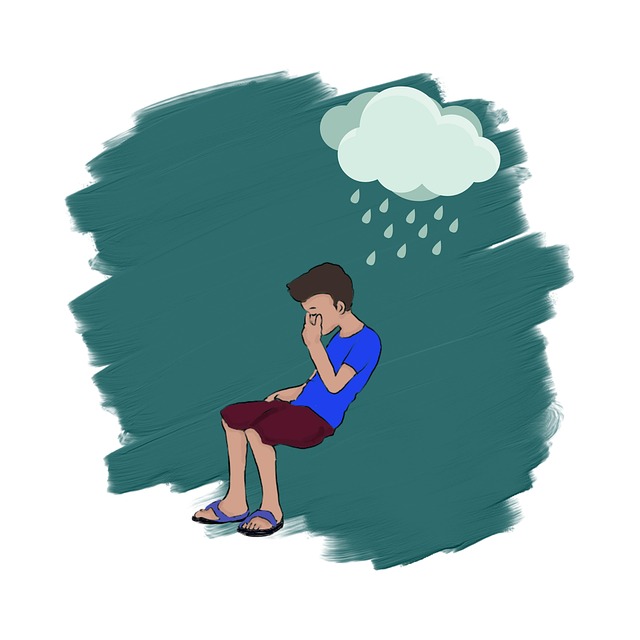Mental wellness apps for young children should prioritize play therapy and cultural sensitivity to effectively address their unique emotional needs. By incorporating engaging, age-appropriate activities, these apps can improve self-esteem and foster healthier relationships between children and caregivers. Digital therapy and therapy apps for kids have become popular tools, offering accessible therapeutic experiences from home. Successful marketing strategies should highlight the power of play therapy through success stories, video demos, and community outreach programs. Developers must build trust by emphasizing evidence-based practices, data privacy, and regulatory compliance to capture market interest. A multi-channel marketing approach leveraging social media, influencers, and educational institutions can effectively connect with young users and their parents.
In today’s digital age, mental wellness apps offer a promising approach to supporting young children’s emotional well-being. This article provides a comprehensive guide to developing an effective marketing strategy for play therapy apps targeted at this vulnerable demographic. We explore the unique needs of young children and how digital therapy can benefit them. By understanding your audience, leveraging engaging content, building trust, and employing multi-channel marketing, you can effectively reach and support these young minds through innovative play therapy solutions.
- Understanding the Target Audience: Young Children and Their Mental Health Needs
- The Rise of Digital Therapy: Benefits for Children's Mental Wellness Apps
- Creating Engaging Content: Marketing Strategies for Play Therapy Apps
- Building Trust and Credibility: Ensuring Safe and Effective Digital Tools
- Implementing a Multi-Channel Marketing Approach to Reach Your Young Users
Understanding the Target Audience: Young Children and Their Mental Health Needs

Mental wellness apps targeting young children must begin with a profound understanding of their unique mental health needs. Youngsters face distinct challenges in emotional expression and coping mechanisms compared to adults, often requiring specialized approaches like play therapy to address issues effectively. Play, for instance, is not merely entertainment; it’s a child’s primary language, through which they communicate, explore, and process emotions. Incorporating play-based elements into therapeutic interventions can make mental health support more engaging and accessible for young minds.
Cultural sensitivity in mental healthcare practice is paramount when developing such apps, as children from diverse backgrounds may have varying emotional expression norms and challenges. App creators should consider how cultural factors influence a child’s mental wellness and tailor content accordingly. Additionally, focusing on self-esteem improvement through age-appropriate activities can empower young users to navigate their emotions and build resilience. The development of mental wellness coaching programs that support both children and their caregivers can further enhance app effectiveness, fostering healthier relationships and improved mental health outcomes.
The Rise of Digital Therapy: Benefits for Children's Mental Wellness Apps

The digital age has revolutionized the way we approach mental health support, particularly for children. With a growing recognition of the importance of early intervention and accessibility, digital therapy is emerging as a powerful tool to enhance young minds. Apps designed for therapy for young children, such as those offering play therapy, have gained significant traction in recent years. This shift towards digital solutions provides several advantages in promoting mental wellness among children.
One of the key benefits is increased accessibility, allowing kids and their parents or caregivers to access therapeutic support from the comfort of their homes. These apps often incorporate interactive mental wellness journaling exercises and self-care practices, tailored to cater to the specific needs of younger users. Through engaging activities and empathy building strategies, children can learn valuable coping mechanisms while having fun. This innovative approach not only makes therapy more appealing but also encourages proactive participation in their mental health journey, fostering resilience and emotional well-being from an early age.
Creating Engaging Content: Marketing Strategies for Play Therapy Apps

In the competitive landscape of mental wellness apps, particularly for young children, creating engaging content is vital to stand out and attract users. Play therapy apps have a unique opportunity to offer an enjoyable and interactive approach to therapy, making it an accessible and appealing option for both parents and kids. Marketing these apps effectively involves crafting content that resonates with the target audience—parents seeking innovative ways to support their children’s emotional well-being.
Focus on showcasing how play therapy can be a powerful tool for conflict resolution techniques among young children. Highlight success stories or testimonials from parents who have witnessed improvements in their child’s behavior and communication skills. Implement engaging video demos or animated explainers to illustrate the app’s features, ensuring it is not just informative but also entertaining. Additionally, promote community outreach program implementations within these apps, fostering a sense of belonging and support for both children and families. By combining therapeutic benefits with interactive content, marketing strategies can effectively attract users seeking fun and effective ways to boost their child’s confidence.
Building Trust and Credibility: Ensuring Safe and Effective Digital Tools

In today’s digital era, mental wellness apps are becoming increasingly popular as tools to support individuals’ emotional well-being, especially among young children who may struggle with anxiety, stress, or trauma. To effectively market these apps and attract users, developers must prioritize building trust and credibility. This involves ensuring that the app provides safe, evidence-based therapy techniques tailored for kids, such as play therapy, which has proven successful in fostering communication strategies and managing stress. By positioning the app as a reliable and secure resource, parents and caregivers are more likely to adopt these digital tools as valuable additions to traditional therapeutic practices.
Marketing efforts should emphasize the app’s ability to deliver personalized and effective mental wellness programs. Highlighting success stories and testimonials from therapists and parents who have utilized similar apps can reinforce the app’s credibility. Moreover, showcasing how the app facilitates communication between children, parents, and therapists, especially through interactive features designed for young minds, will appeal to organizations focused on stress management workshops. Ultimately, building trust requires transparency about data privacy, ensuring compliance with regulations, and providing clear guidelines on how user information is protected.
Implementing a Multi-Channel Marketing Approach to Reach Your Young Users

In today’s digital age, reaching young users requires a multi-channel marketing approach that combines strategic elements across various platforms. This strategy is crucial for promoting mental wellness apps targeted at children and their parents. By integrating Therapy for Young Children and Play Therapy concepts into your marketing, you can effectively connect with this demographic. Utilize social media to share engaging content featuring Self-Awareness Exercises, highlighting their benefits in a fun and accessible manner. Collaborate with influencers who have a strong following among young families to endorse the app’s innovative Social Skills Training features.
Additionally, consider partnering with educational institutions and pediatricians to expand your reach. Incorporate Mental Wellness themes into school workshops or community events, demonstrating the app’s value as a supplementary tool for emotional growth. Leverage email marketing campaigns targeted at parents, offering insights on child mental health alongside personalized recommendations for the app’s age-appropriate activities. This diverse marketing strategy ensures that your message resonates with young users and their caregivers, fostering a deeper connection to the app’s offerings.
In developing a marketing strategy for mental wellness apps, particularly those focused on therapy for young children and play therapy, it’s essential to navigate a multi-channel approach. By understanding the unique needs of young audiences, leveraging the benefits of digital therapy, creating engaging content, and building trust through credible sources, app developers can effectively reach and support this demographic. Implementing these strategies ensures that apps offering therapy for young children become accessible, appealing, and trusted resources in promoting mental wellness.









